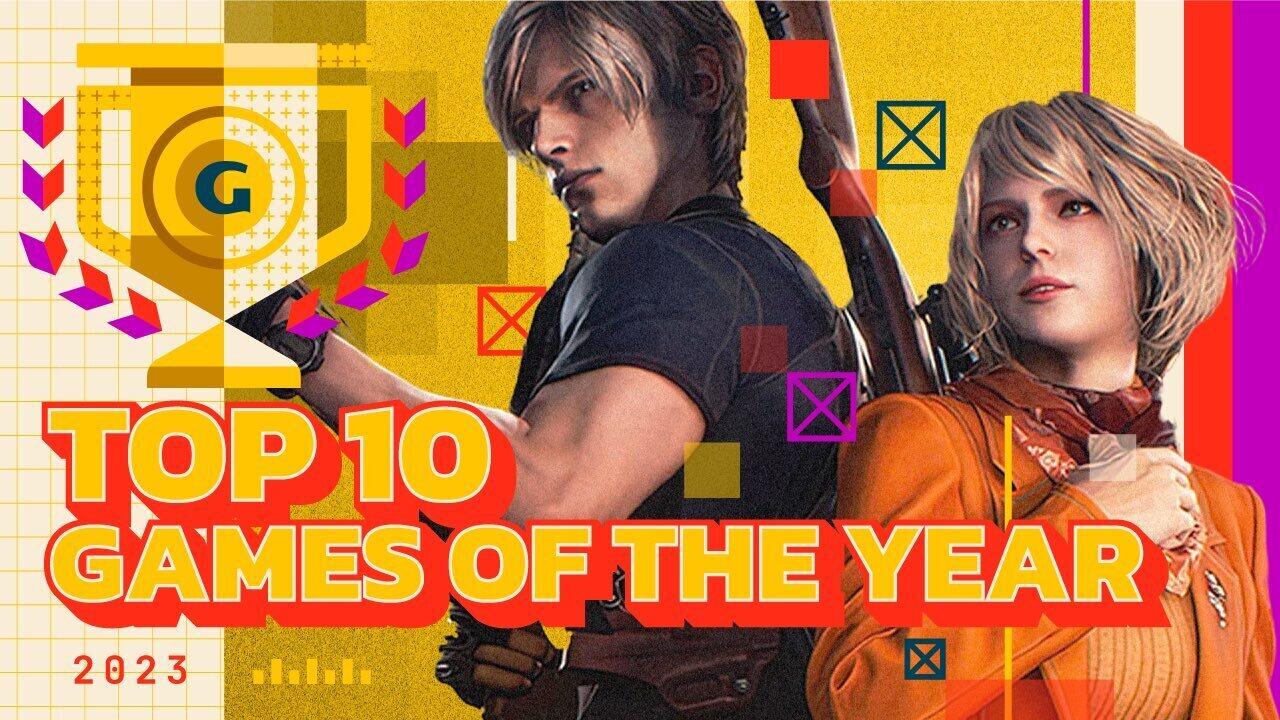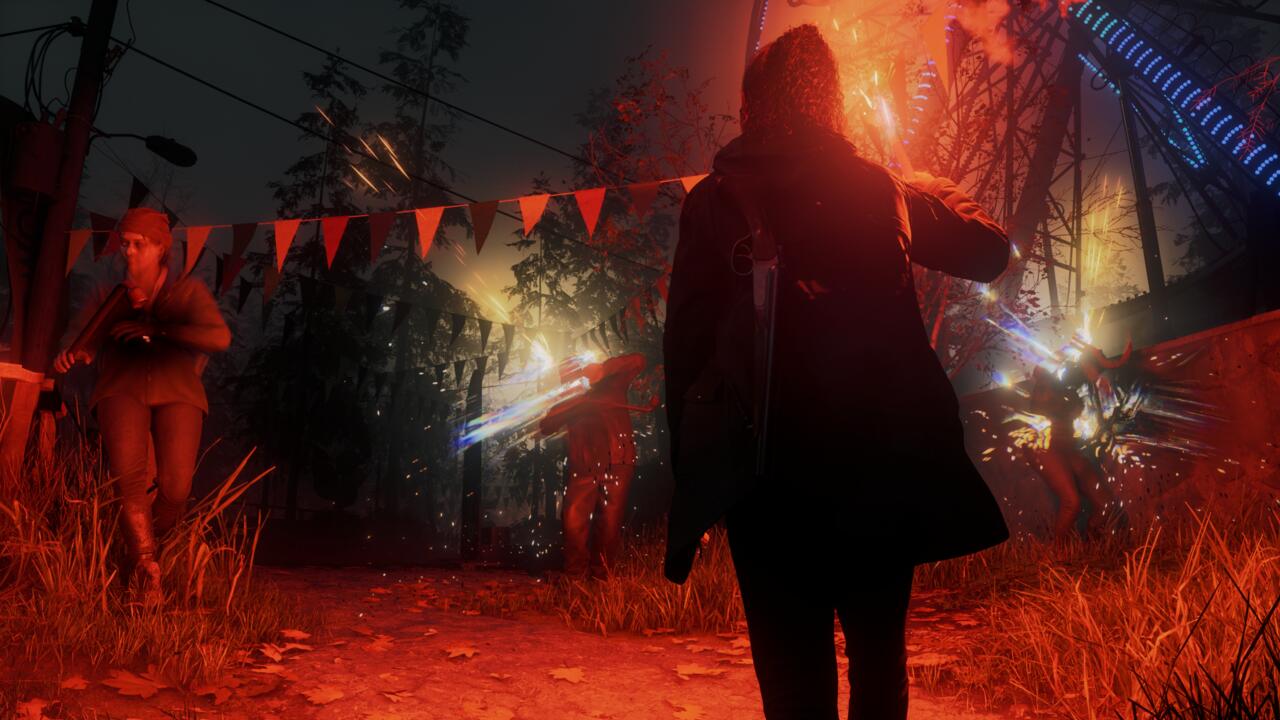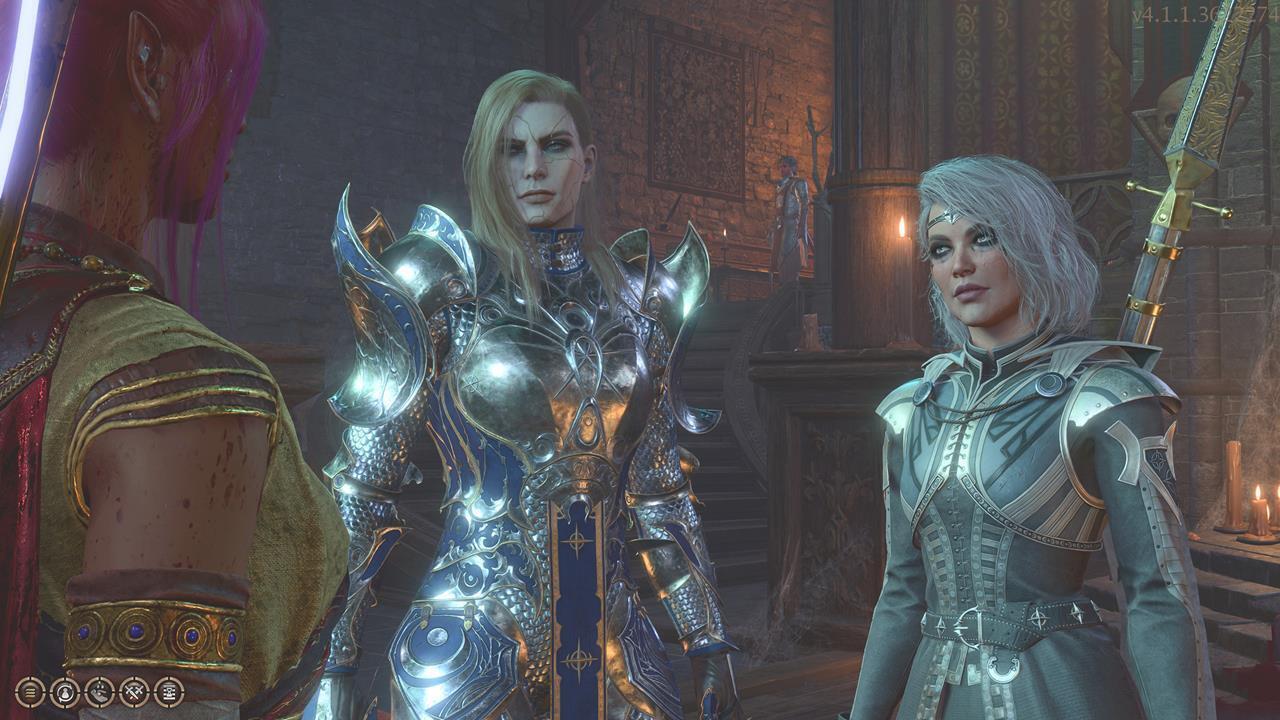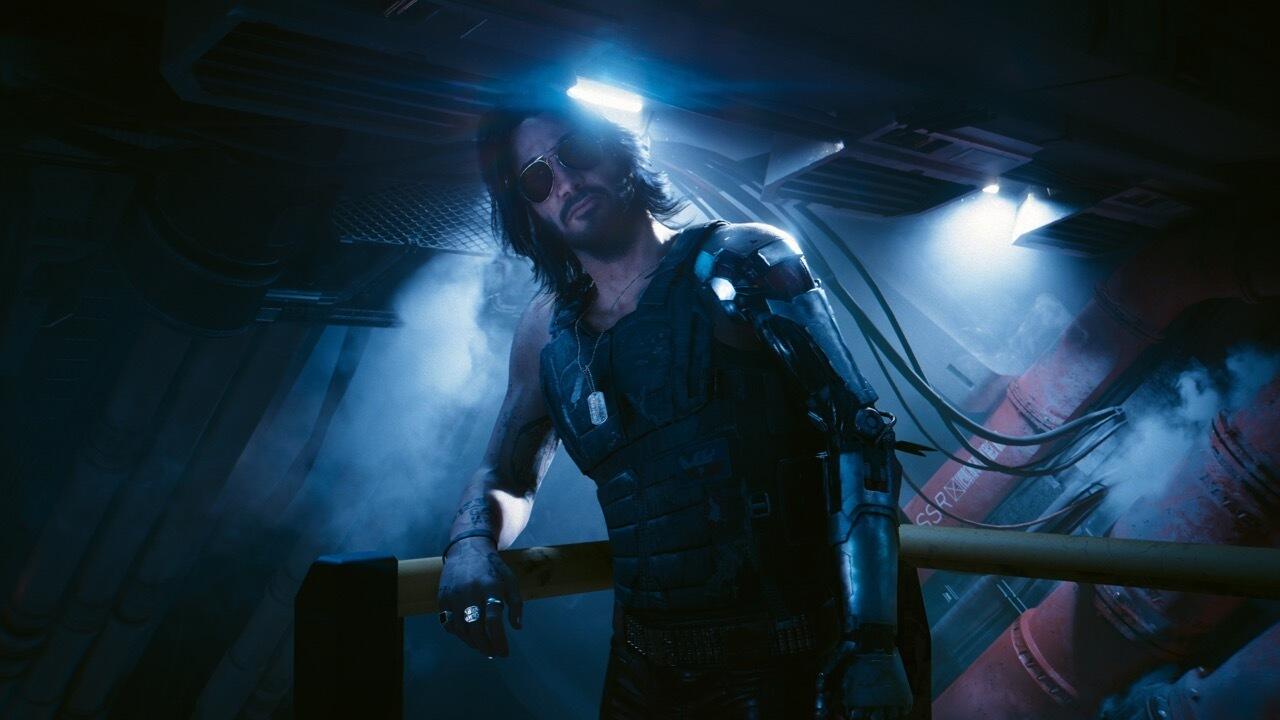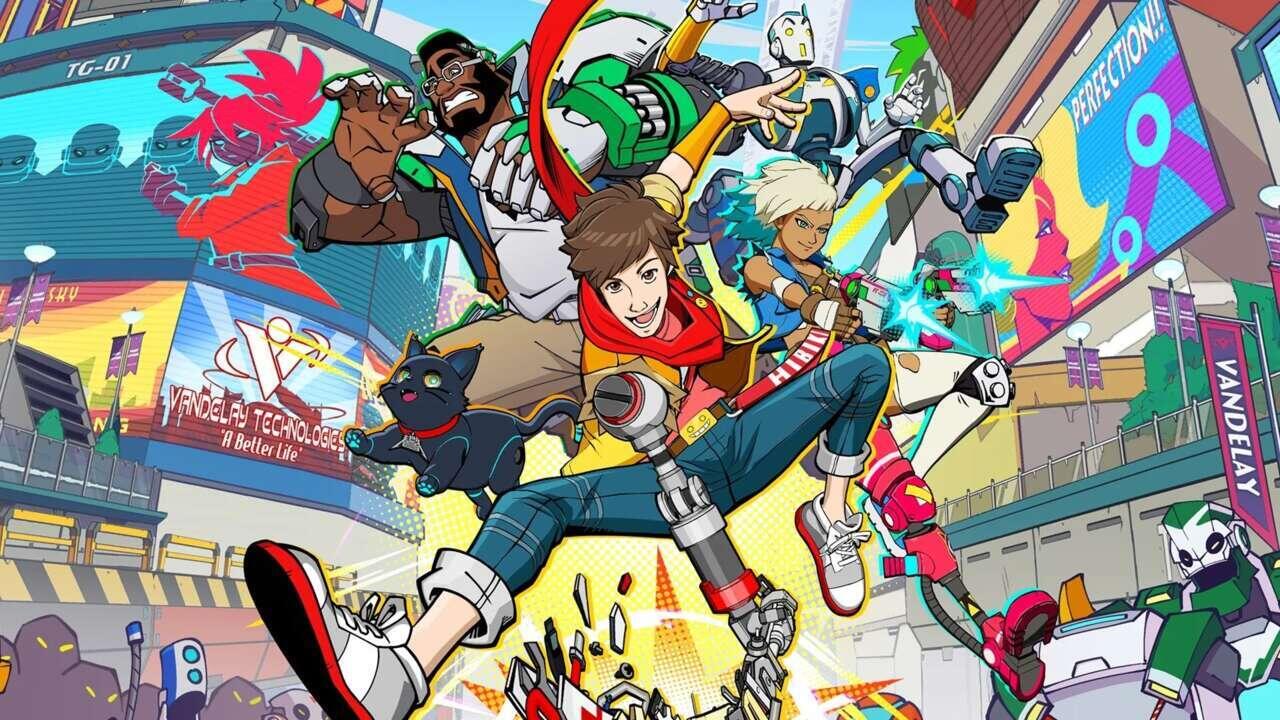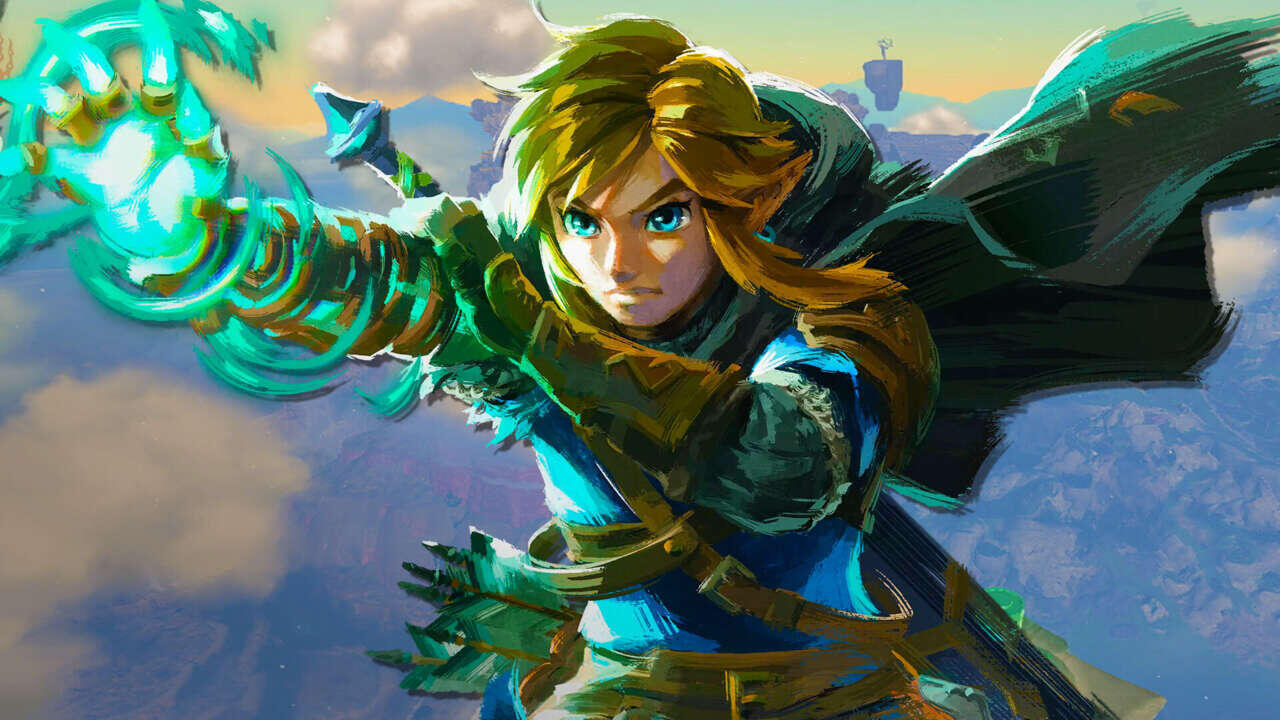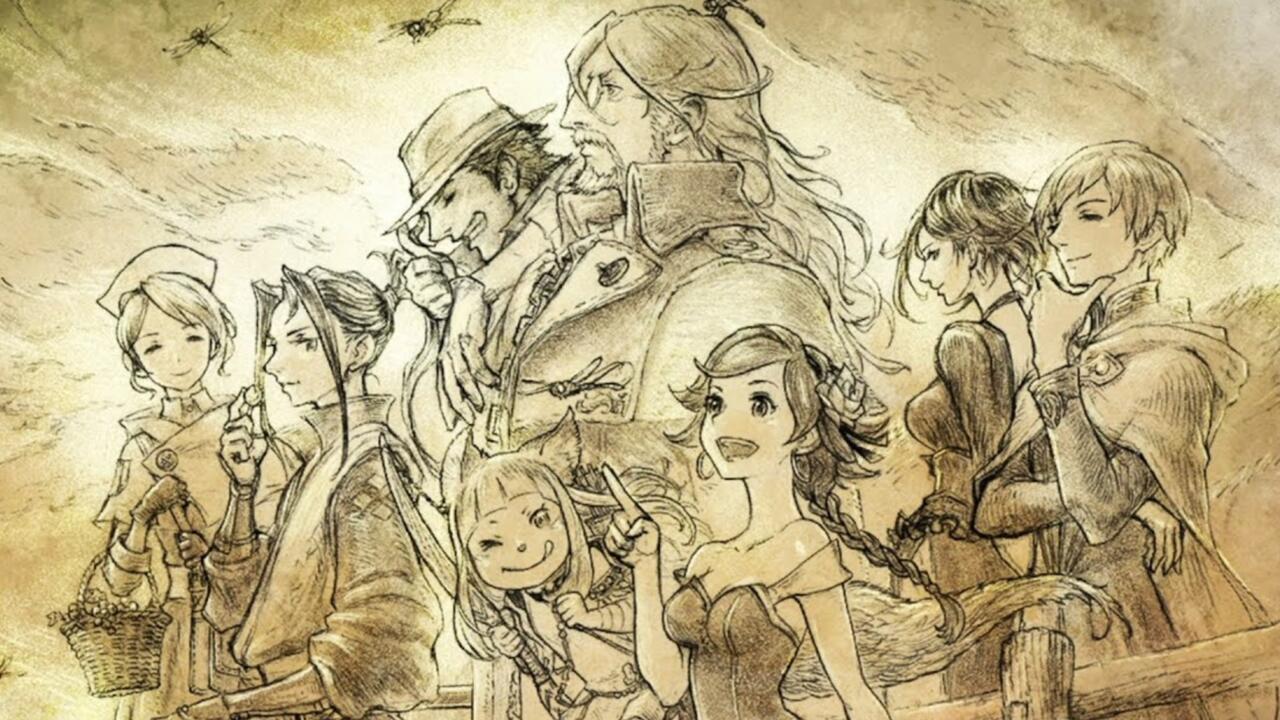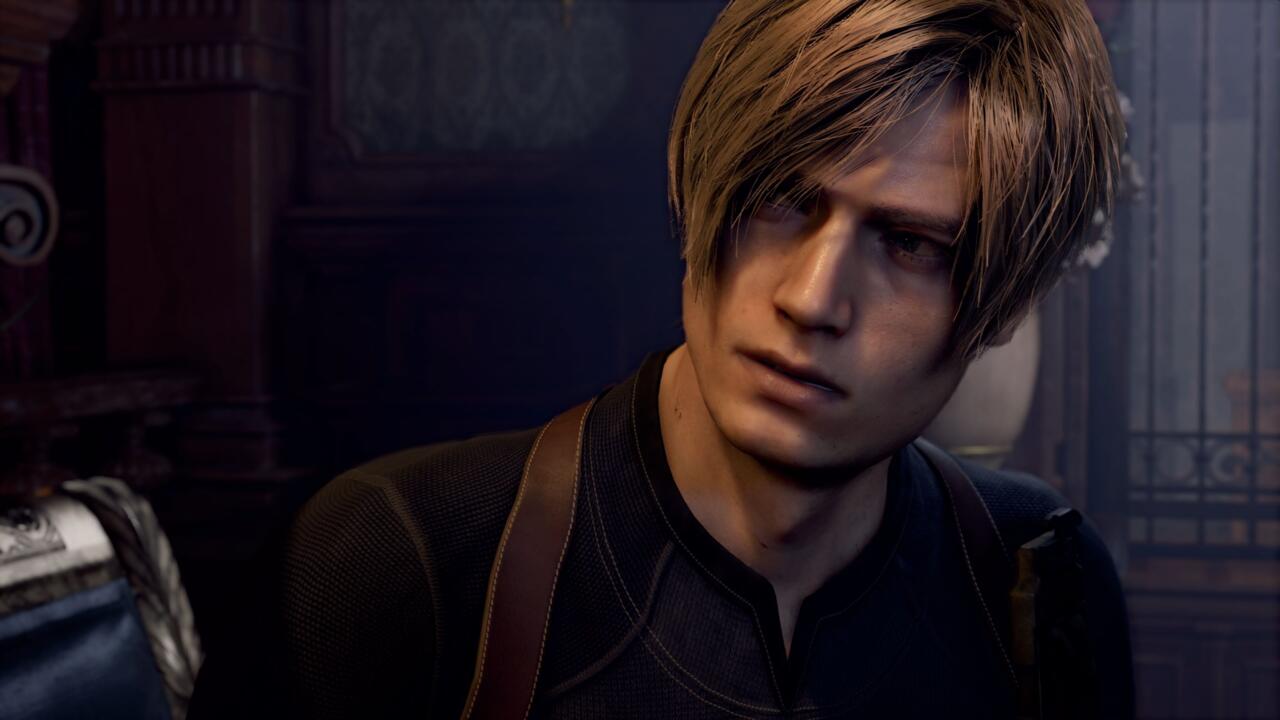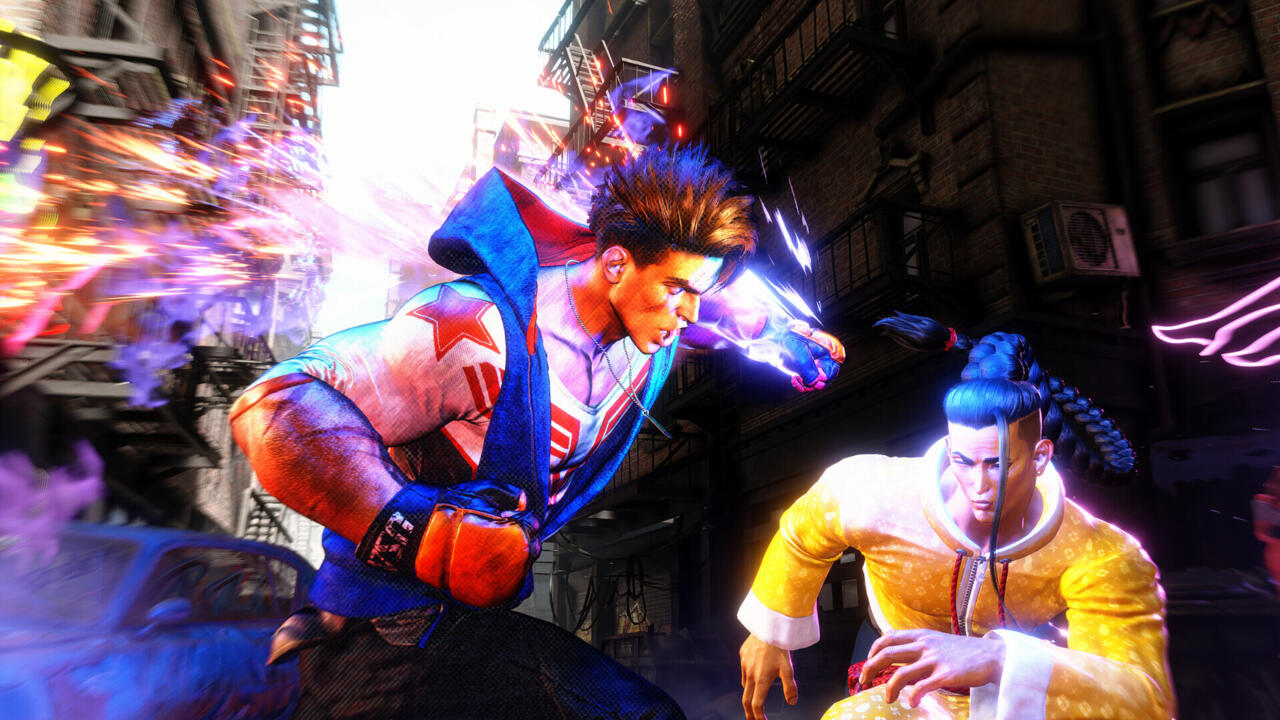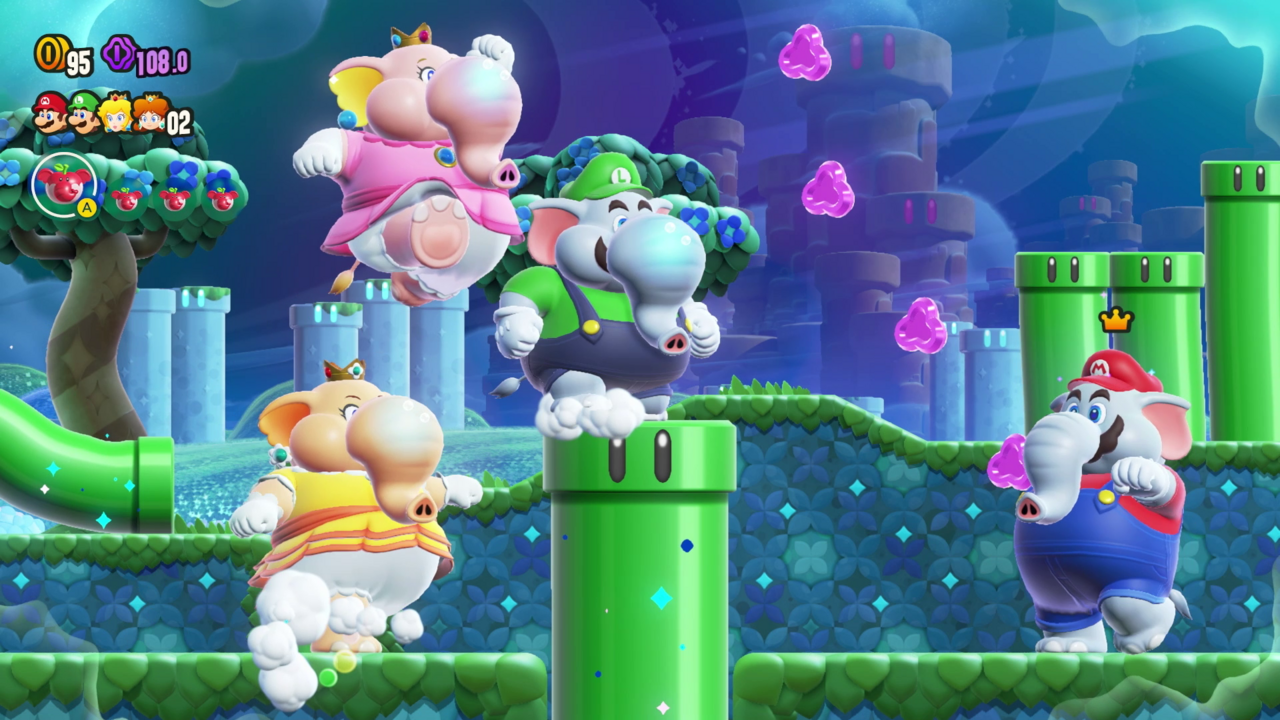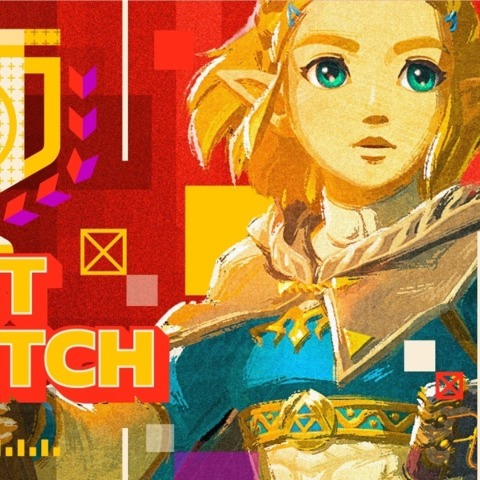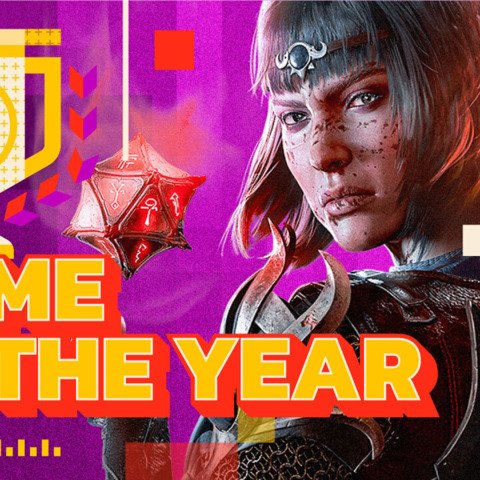GameSpot's 10 Best Games Of 2023
GameSpot may receive revenue from affiliate and advertising partnerships for sharing this content and from purchases through links.
2023 has been a very tough year for the video game business, with regular layoffs across the industry despite the record profits. It's difficult to celebrate how incredible games are without acknowledging the way many corporations have treated the individuals responsible for those very games. By some estimates, more than 7,000 jobs have been lost in the gaming industry just this year so, at GameSpot, while we want to highlight great new games, it's important not to disregard the human cost of this year.
We love games (in case the name "GameSpot" wasn't a good indication), so with the acknowledgment that, while the industry is in dire need of addressing significant issues pertaining to the treatment of game developers, we can still talk about how incredible the games have been and what our favorites are. That's what this gallery is about--as a publication, we got together to talk about all the games we each played during the year and narrow down what we collectively agree to be the best games of 2023. You can get our takes on the best games of the year below, but we'd also encourage you to think about the human element of gaming and read up on the biggest gaming news of 2023--which includes details on layoffs, increased use of AI, and even more acquisitions--to have a more comprehensive grasp of how large swaths of the gaming industry may be becoming increasingly unsustainable.
Below, listed in alphabetical order, are GameSpot's picks for the 10 best games of 2023, which includes consideration for games released in previous years that were substantially updated or changed this year. [December 6 update: Our 2023 Game of the Year pick has been announced.]
Alan Wake II
Available on PS5, Xbox Series X|S, and PC
Given the many years that had passed since the release of the original Alan Wake, which had seemingly not been a major commercial success, an industry trend of moving toward live-service games, and numerous other factors, the notion that we'd get a proper Alan Wake II--a full-blown, triple-A sequel, rather than a more bite-sized, budget-friendly spin-off like 2012's American Nightmare--seemed like a pipe dream. That it merely exists is all that fans of Remedy's games, and specifically Alan Wake, could have hoped for. But the reality of what Alan Wake II is far surpasses even the wildest expectations for what it could be.
With Alan Wake II, Remedy makes a number of bold choices: shifting to the survival-horror genre; introducing a second playable character, Saga Anderson, whose story can be freely played at any point alongside Alan's; embracing Remedy's love for live-action and integrating it in a way that feels natural and elevates everything around it; and perhaps most importantly, leaning into that signature Remedy weirdness.
This all works in service of the narrative, which is first-class in every regard, from the writing to the performances to the multiple layers on which the story works. There's the surface-level story as the eponymous author continues to try writing his way out of a decade-plus-long stay in the Dark Place and Saga investigates ritualistic killings and finds herself unexpectedly wrapped up in the happenings. But beyond that, there is the examination of imposter syndrome, the continued evolution of the Remedy Connected Universe, and the meta-story it tells about Remedy's years-long struggle to make the very game you're playing. And it nails all of this, leaving you with countless threads to untangle and a narrative we expect to stick with us for months or even years to come.
Alan Wake II builds a haunting atmosphere throughout, whether you're wandering through the woods, hoping for a glimmer of sunlight to break through the vast, looming set of tree branches overhead and provide you with a brief reprieve from the oppressive darkness; visiting a unsettling, coffee-themed amusement park; or exploring the New York City-like Dark Place, complete with its aggressive graffiti and signage that assails Alan's psyche at every turn. But it also has a wonderful sense of humor and ample levity, which Remedy manages to balance as exceptionally as anything this side of a David Lynch joint--and even then, Alan Wake II feels more confident and self-assured as its own distinct thing than the obviously Twin Peaks-inspired original game.
Further elevating Alan Wake II is a 20-minute sequence that melds survival horror, music, and live action in a way that is jaw-droppingly good and may even outdo Control's Ashtray Maze, making for one of the most memorable moments ever.
It has been a long, arduous wait for Alan Wake fans to see what's next for the character and the series, but it was well worth it. Alan Wake II is a triumph. -- Chris Pereira
Baldur's Gate III
Available on PS5, PC
Though Dungeons & Dragons might be known for its hefty tomes and long lists of rules, any dungeon master worth their salt will tell you there is one core tenet of the game that is more important than any of the rest: Try to say "no" as little as possible. It's a tall task for a dungeon master, as it requires them to think on their feet, go with the flow, and abandon even their most well-thought-out plans if their players stray too far from their anticipated path. But it's an even more unimaginable feat for a video game that doesn't have the luxury of there being another person on the other side of the screen, scrambling together new storylines and NPCs as quickly as the throw of a die--and this is precisely what makes Baldur's Gate III absolutely astonishing.
Despite being a concrete, finished game, Baldur's Gate III has this way of feeling infinite. Seemingly everything you do, say, and are is being constantly factored into the game, causing it to unfurl around players in dozens of different directions, none of which necessarily feel more "correct" than others. Want to kill off or enrage every teammate you can possibly attain and complete the entire campaign alone? Unadvisable, but doable. Want to possess so much charisma you can talk your way out of nearly every encounter? Go right ahead. By poking, prodding, and testing every last one of the game's seemingly nonexistent limits, you can fight the literal devil, unleash a hoard of vampires, ascend to godhood, level cities, have cosmic sex, and even eat one of your companions. In the bad way. But also in the other way, too.
Player choice (and those pesky dice) control every aspect of Baldur's Gate III, creating a perfect and unfathomable permutation, the likes of which we've never before seen. And while just that factor alone solidifies the game as a new benchmark for RPGs, there are several other things Baldur's Gate III has going for it: great music, beautiful environments, a robust world, exhilarating combat that rewards outside-the-box thinking, and an incredible cast of characters. There are extremely few games that can compete with Baldur's Gate III's voice acting and accompanying animations, and the dialogue is so natural, heartfelt, and wickedly funny that every party member is easy to fall in love with--even those with ice-cold exteriors. Baldur's Gate III is an achievement in gaming and a must-play RPG that will open your eyes to what games can be. -- Jessica Howard
Cyberpunk 2077: Phantom Liberty
Available on PS5, Xbox Series X|S, and PC
Is it finally time to play Cyberpunk 2077? The answer is a resounding yes. 2023 was a big year for CD Projekt Red's sci-fi RPG. The 2.0 update brought with it revamped skill trees, reworked cyberware, and introduced vehicular combat. The result is a fast, fluid, and crunchy combat system that supports multiple builds and playstyles. Want to dash around with a katana? No problem. Want to pulverize your foes with a shiny set of gorilla arms? Easy. When you throw in the years of support and bug fixes, Cyberpunk 2077 sits comfortably with some of the best action RPGs out there.
But Patch 2.0 only tells half of CD Projekt Red's success story. 2023 also saw the release of Phantom Liberty, a sharply written spy thriller expansion set in a seedy new district called Dogtown. Dogtown, although located within Night City, feels unique thanks to its rich history and rampant lawlessness. Each location V visits and gig they complete feeds into this world and its disorder. Everything feels cohesive and interconnected in a way that the original game didn't.
However, Phantom Liberty's greatest achievements are its story and characters. V is trapped in the middle of an ongoing struggle between a vicious warlord and the New United States while building tenuous relationships with a sleeper agent named Solomon Reed and a crack netrunner who goes by Songbird. The characters are the heart and soul of Phantom Liberty. In true spy thriller fashion, the game regularly poses the question: How well can you actually know someone? Even during the final stretch of Phantom Liberty, plot revelations and twists will continue to upend your understanding of certain characters in a way that feels earned, but will still leave you conflicted.
The meticulously paced story culminates with one of the toughest decisions I've ever had to make in a video game. There is no right or wrong, and V will burn bridges no matter the choice. What follows are two vastly different endings that are both ambitious, risky, and satisfying. Phantom Liberty, from start to finish, is an expertly crafted expansion that showcases a CD Projekt Red that's still at the top of its game. -- Jake Dekker
Hi-Fi Rush
Available on Xbox Series X|S, PC, Xbox Cloud Gaming
Hi-Fi Rush was one of the biggest surprises of 2023, not only because of how damn good it is, but also because no one had any idea it existed before Tango Gameworks and Bethesda released it in January. A studio founded by the godfather of survival-horror and known exclusively for scary games had released the exact opposite of that--an incredibly fun, lighthearted, and joyous action game that manages to somehow succeed both as a Devil May Cry peer and as an unexpected revival of the rhythm genre. That this is the first game of its kind from a studio known for the dark and macabre is truly astounding.
Rather than simply use its soundtrack to set the mood for its chaotic fights against murderous robots (they're much cuter than they sound), Hi-Fi Rush makes music a central gameplay mechanic. Nearly everything in the world--from characters to the environment--moves to the beat, giving the entire game a driving pace that you'll want to match. It's not required, as you can still make it through the game while mostly ignoring your timing, but getting a higher score and pulling off the most impressive moves is accomplished by getting down to those beats.
And what good beats they are. A mix of brilliantly curated licensed music and original tracks, Hi-Fi Rush's soundtrack is like the musical equivalent of a perfect summer day, but it's mixed with just enough drama and tension to give the boss fights some weight without ever losing that walking-on-sunshine high. Unfortunately, Katrina and the Waves is not included on the soundtrack, which features some killer original tracks full of soaring guitar leads and dynamic crescendos.
Perhaps Hi-Fi Rush's greatest achievement, however, is kicking off the Year of the Himbo. Sure, Travis Kelce is getting all the attention these days with resurfaced old tweets about feeding a "squirle," but rockstar-wannabe Chai started the year off strong. Incredibly inept at just about everything--including playing guitar--he's the kind of video game hero you would never bet on in a fight but would always want to hang out with. We can only hope that this isn't the last time we see Chai and his friends because just like the perfect album, we were ready to start the whole thing over again when we reached the end. But, really, please make another one. -- Gabe Gurwin
Hitman Freelancer
Available on PS5, PS4, Xbox Series X|S, Xbox One, and PC
Between 2016 and 2021, IO Interactive worked to support and improve its long-running Hitman series with what is today known as the World of Assassination trilogy. According to many of the series' biggest fans, including this author, the team had just about perfected it by the time Hitman 3 launched in 2021, and it resulted in that game making GameSpot's Best Of list that year.
Now, two years after that award, Agent 47 graces our year-end list once again, this time thanks to its major (and free) update, Freelancer, which transforms the game into a roguelite mode that reimagines--but never betrays--what made the game so special in the first place. Whereas Hitman has always been a game about careful planning that may ultimately give way to chaos, Hitman Freelancer drops you into the chaos right away. Gone are the comforts of carefully selecting your starting weapons and items, your entry location, and your disguise.
Instead, the goal is to execute an endless supply of campaigns that amount to 18 successful missions per run, each with its own targets, bonus objectives, and obstacles. No two missions ever play the same, which gives what was already one of the best-supported single-player games new life. Hitman Freelancer combines touchpoints of the game's past supplementary modes into one incredible experience. Like Elusive Targets, just one mess-up may send you back to the start of the campaign, while the way some enemy awareness and difficulty builds up throughout a run is akin to the game's Escalation Contracts. The removal of some reliably predictable elements, such as who your target will be, where they may roam, and what tools you'll begin with turn a game of expert planning into one of masterful improvisation--it's like Agent 47 now plays in a jam band instead of a math rock group.
But it's the game mode's most unexpected detail that takes it beyond being an already brilliant reinvention of Hitman's core gameplay loop. Between missions, Agent 47 hangs out at a customizable safehouse that you'll unlock room by room, decoration by decoration. I never knew I wanted my Hitman to have a little Sims in it, but it really works. With a lengthy 100-level system full of new home decor and rooms to unlock, many of which also grant new items to take into missions, Hitman Freelancer is the victory lap for a game that stands as a shining example of single-player post-launch support, and an endlessly enjoyable standalone mode for one of the best games I've ever played. -- Mark Delaney
The Legend Of Zelda: Tears Of The Kingdom
Available on Nintendo Switch
The Legend of Zelda: Tears of the Kingdom faced virtually insurmountable expectations. A direct sequel to what many fans regard as one of the best games of all time had to be impossibly ambitious, familiar yet fresh, and full of new secrets and surprises. That high bar makes it all the more impressive that Nintendo not only met but exceeded expectations with Tears of the Kingdom, a new high-water mark for Zelda games going forward.
While Breath of the Wild subverted the narrowly focused Zelda format with a wide-open world to explore in any order you choose, Tears of the Kingdom reinvented itself yet again by giving you a completely new set of tools for an unprecedented level of freedom within the open world. No longer restricted to exploring on horseback or foot, you could build horse-drawn carriages, automobiles, bridges and walkways, whirlygig flying contraptions, and even automated attack bots.
With these added exploration tools came an even larger world to explore. The familiar land of Hyrule was shown to be growing and changing in a new nascent industrial age, letting you continue chapters and reconnect with characters from Breath of the Wild to see how their circumstances had changed. The Sky Islands provide a whole new mass of puzzle and platforming opportunities with their own mysteries to uncover. And the game's best-kept secret before launch, the Depths, turned out to be a sprawling open world of its own that mirrors the overworld, effectively doubling the space to explore.
Breath of the Wild's Divine Beasts were replaced with proper temples, puzzle-laden dungeons that reward creative problem-solving. Boss fights were unique, gripping spectacles that made use of your various regional companions, acting as a true skill-test for each power.
Perhaps most significantly, Tears of the Kingdom told an original story that stayed true to the mythos of the series while recontextualizing many of its most well-worn pieces. With the Master Sword broken and corrupted and Zelda lost after a confrontation with Ganondorf, Link sets out to find her and unlock the mystery of strange Zelda sightings around Hyrule. The ultimate conclusion of the tale is cathartic and poignant, giving Zelda a central role in her own series' namesake. Tears of the Kingdom is an unforgettable adventure and among the very best this year had to offer. -- Steve Watts
Octopath Traveler II
Available on PS5, PS4, Switch, and PC
In recent years, there's been a wave of neo-retro RPGs that evoke nostalgia while incorporating modern sensibilities, but very few push the genre to new heights. Octopath Traveler II is one of those rare games. While the original pioneered the striking HD-2D art style, it's the sequel that made good on the ambitions of bringing eight characters together for meaningful stories full of hype moments and spectacular boss fights that stretch the possibilities of turn-based combat.
To say it's more of the same is a disservice to the way Octopath Traveler II addresses nearly every shortcoming of the first entry. There's a greater sense of togetherness within the crew, and each of their individual stories offers inspiring reasons to fight for what they believe in. From their designs, voice acting, and personalities, they're a charming bunch from all walks of life who you're sad to say goodbye to when the credits roll. Taking a step back, this game demonstrates an understanding of how the oppressive forces of the wealthy or powerful exploit working-class people, and that poverty isn't just something to overcome but a systemic issue to take action against. It's a smart commentary in a turn-of-the-century industrial age where technology swiftly sweeps the world woven into a fantastical tale of loyalty, religion, and how desperation can easily turn people evil.
It's not enough to say Octopath Traveler II took care of the original's weaknesses; it also improved the already-stellar combat to create what's arguably the best turn-based system ever. From the elaborate Job system and unique abilities tied to each character to the Boost gauge and limit break-esque Latent powers, you get so many tools to break and exploit enemies as you tee up chunky hits for massive damage. It's wildly satisfying because of the puzzle-like nature of juicing each turn effectively and manipulating turn order to make the most of every ability available. Especially in the most challenging boss battles, the layers of the party dynamic and intricacies of your skill set show their full potential with just enough complexity without ever getting overwhelming or incomprehensible.
But perhaps Octopath Traveler II's greatest achievement is in its jaw-dropping soundtrack. Many RPGs wield music as a storytelling device, and composer Yasunori Nishiki and team absolutely took this idea and smashed it. Every character's theme song tells you so much about who they are, every battle theme's momentum invigorates you in each fight--and when the soundtrack cleverly blends the two for critical moments in individual chapters, it's a harmony between music and narrative done in a way we so rarely experience. It further emphasizes the effectiveness of a beautiful, commanding soundtrack and the power it has to elevate a game's story beyond its script.
Octopath Traveler II is an investment as an RPG that can easily total 80-something hours. But every hour of that journey is worth it. While it catches your eye with its modernized nostalgia, everything else around it rivals the best of contemporary RPGs. And in our own terrifying world, rife with hardship, injustice, and class struggle, Octopath Traveler II is an inspiring game that shows a better life is possible when we uplift each other and fight together. -- Michael Higham
Resident Evil 4 Remake
Available on PS5, Xbox Series X|S, PC
It's a tall order to remake one of the greatest games of all time. After all, the original Resident Evil 4 revolutionized the way games were designed--it's like asking someone to reinvent the wheel. Resident Evil 4's remake, however, doesn't feel like it's aiming to revolutionize games the way the original did 17 years ago. Instead, Capcom doubled down on what has made Resident Evil 4 timeless all these years later: its design, its tension, and, of course, Leon S. Kennedy (just to name a few). The result is something iconic in its own right, serving as a monument to its past, while acting as a beacon for action-survival-horror going forward.
2023's RE4 took its characters, its over-the-top action movie sensibilities, and its masterful horror design, and injected it with super powers, creating a version of RE4 that feels more cohesive and tightly interwoven, giving it narrative continuity that ties all of Capcom's Resident Evil remakes together, making this new era of the franchise feel stronger and more unified than the originals. Leon Kennedy is still an absolute cornball, but a cornball with an emotional resonance that has more at stake in the story, instead of merely being a cool dude trying to rescue the president's daughter (which he still absolutely is, too).
RE4 remake also featured some of the best combat this year. Each encounter felt like a waltz of gunfire, knife parries, and melee violence, interspersed with incredible one-liners and nail-biting resource management while being surrounded on all sides. It invoked the same feeling as the original did, but with a fluidity that rivals most modern gaming experiences. This is also a game where you can parry a chainsaw with a knife. Just saying.
It's hard to not talk about Resident Evil 4 remake as if in tandem with its original. It's only natural, considering the influence it had on the medium as a whole. But in doing so, it equally feels like a disservice to what this year's RE4 has managed to accomplish. The Resident Evil 4 remake deviates from the original in many ways but never compromises anything that made it revolutionary. Instead, it preserves that, recontextualizes it, and rejuvenates it in a game that is designed to keep veteran players constantly on edge, toying with what they remember, and in turn, using that familiarity as subversion. Capcom has masterfully created a new version of a beloved game and continues to blaze a trail with its Resident Evil remakes. Like the Resident Evil 2 remake before it, Capcom demonstrates its ability to capture the spirit of the original, respectfully evoking the same sense of atmosphere and tone that the original developers aspired to. At the same time, it empowers players with new mechanics and places challenges in their way to test their mastery of them. In that respect, the remake stands as a brilliant re-envisioning of its past rather than a mere replication of it. -- Kurt Indovina
Street Fighter 6
Available on PS5, PS4, Xbox Series X|S, and PC
Making a new fighting game is kind of like reinventing chess--yes, it's another fighting-games-are-chess take; stick with it. That's true of how designers and developers approach establishing the rules of the games and how players interact, but even more so, it's true of what fighting game players expect from a new entry in the genre. If Street Fighter 2 Turbo is considered to be the chess of Capcom's long-running fighting game franchise, each new entry since its release has tasked the company with improving upon perfection. And while whether any of the follow-ups is actually better than Street Fighter 2 Turbo is open to debate, there have definitely been successful new entries in the Street Fighter franchise.
The Street Fighter Zero/Alpha series brought a youthful exuberance to the world warriors, while also layering on a number of interesting mechanics that evolved what Street Fighter could be. Street Fighter 3, specifically Third Strike, made the systems feel open and pushed the skill ceiling so high that it sustained a community for years, even as the series went dormant. But there are also Street Fighter titles that haven't been as well received, and Street Fighter V is one of them. It was a good game in many ways, but it also felt uncharacteristically plain and rigid--lacking the spirit of what Street Fighter is in aesthetic, tone, and gameplay offerings.
Street Fighter 6, however, has been a return to form for Capcom's premiere fighting game franchise. From the very first trailer, it was clear that having a vibrant and energized personality was key to the game, and that is represented in everything from its music and character design to its game modes and user interface. Most important, however, is the new gameplay system that powers all the combat engagements. The Drive system takes some of the ideas from older titles and breathes new life into them, while introducing new elements that make them feel fresh and exciting.
The Drive Gauge is key to it all, as it is used to execute Drive Impact, Drive Parry, Drive Rush, Drive Reversal, and Overdrive. Together, they function as essential tools to providing some room for expression and allowing for players to develop styles, whether that is methodical and oriented around controlling space while exploiting mistakes, or aggressive and built on rushing the opponent down and overwhelming them to create an opening, then exploiting it with flamboyant combo strings and tricky setups. Everything from Street Fighter IV's FADCs to Street Fighter III's parries is here in some form, and it all makes for a wonderfully rewarding fighting game to pick up and learn.
In a rather unexpected move, Capcom has also leaned heavily into giving players more ways to engage with the game. After a few threadbare story modes, Street Fighter 6 delivers a robust World Tour mode. Sure, it's not exactly a riveting tale of rising through the ranks to become a renowned fighter, but it is certainly a goofy and fun one. This is, in large part, thanks to the ability to pick a fight with pretty much any NPC in the world so that, at a moment's notice, you can be duking it out with a salaryman or hot-dog stand owner, with unexpected battle conditions amping up how weird the whole situation is.
Street Fighter V is remembered as being quite a staid game--described by some as "turn-based"--but its follow-up goes in the opposite direction by prioritizing depth, player skill and high-level execution, and it does so while making sure it has a distinct vibe and personality. These are all the essential ingredients of a good fighting game, and in 2023, Street Fighter 6 stands out as one of the best. -- Tamoor Hussain
Super Mario Bros. Wonder
Available on Nintendo Switch
A character and series that has been the subject of constant change, Mario came along this year and reinvented itself again. Super Mario Bros. Wonder is the latest mainline 2D Mario game, and the first in several years to drop the "New SMB" moniker that its 2D entries have been saddled with. That name feels like a conscious choice when you actually play Mario Wonder because, wahoo, this one really is different.
It starts with the presentation. The art style has been overhauled to give Mario and company more expressive faces and animated gestures as they navigate through vibrant stages. The head-bopping acapela-infused music tracks keep everything feeling light and breezy. The new setting of the Flower Kingdom introduces tons of new power-ups and enemy types, infusing the whole affair with life and creativity.
And that's all before we even introduce the main new gimmick, the Wonder effects. These inventive, world-changing effects are tailored to each stage, barely ever repeating. They're the backbone of the progression while also being a source of constant, delightful surprise. You never know just what you're going to get when you start a new stage in Super Mario Bros. Wonder, but it's bound to put a smile on your face.
Meanwhile, Mario Wonder packs a ton of thoughtful quality-of-life changes to the Mario formula, modernizing it in subtle ways. Character selection has been widely expanded, and more stage types have been added for a variety of length and play styles. Online and local multiplayer lets you turn any stage into a speedrun competition, or just go off on your own while still staying in your friends' lobby. Even more surprising is the new asynchronous multiplayer features, which let you see ghosts of other players who can revive your ghost or leave standees to drop hints. Who would have guessed Mario would take inspiration from Dark Souls, much less that it would work so well?
Mario is a character and a franchise nearly as old as video games themselves. After this long, we may have thought that the plucky plumber could no longer surprise us. How glad we are to discover that isn't the case. -- Steve Watts
